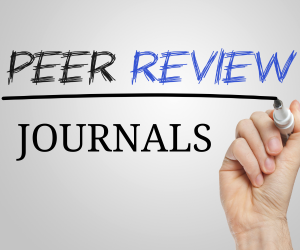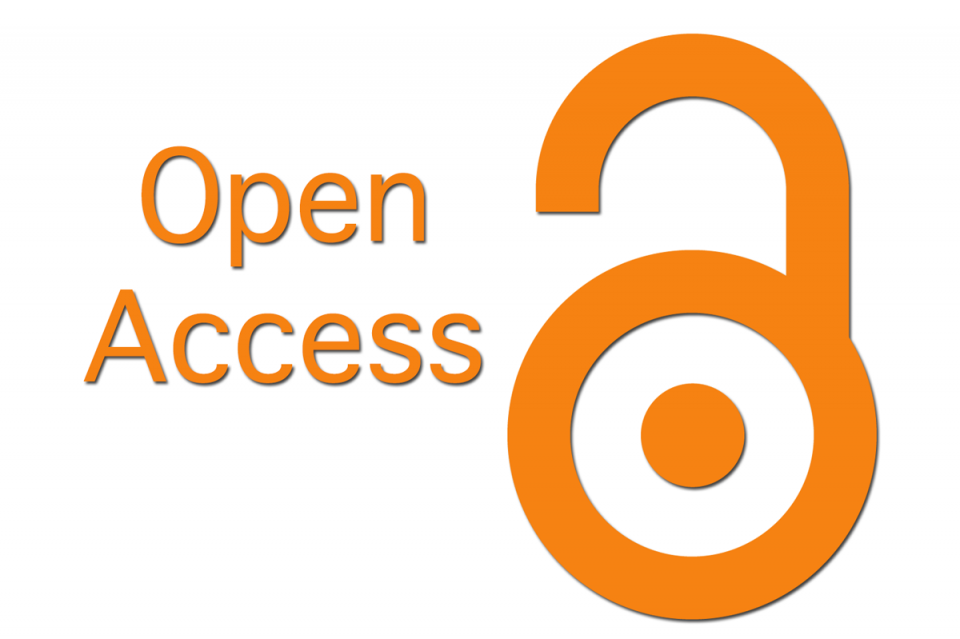SARS-COV-2 INFECTION DURING PREGNANCY AND RISK OF PREECLAMPSIA: A SYSTEMATIC REVIEW
DOI:
https://doi.org/10.61841/gn365t97Keywords:
SARS-CoV-2, Pregnancy, Preeclampsia.Abstract
Background: The concurrence of pregnancy-related diseases (gestational hypertension, preeclampsia and eclampsia) with the COVID-19 virus is a clinical novelty, classified as a serious maternal risk. 1 2 A living systematic review with meta-analysis in pregnant and recently pregnant women reported severe COVID-19 infection in 9%; the intensive care unit admission required in 4%; invasive ventilation used in 2%; and extracorporeal membrane oxygenation administered in 0.2%.
The aim: This study aims to show about SARS-CoV-2 infection during pregnancy and risk of preeclampsia.
Methods: By comparing itself to the standards set by the Preferred Reporting Items for Systematic Review and MetaAnalysis (PRISMA) 2020, this study was able to show that it met all of the requirements. So, the experts were able to make sure that the study was as up-to-date as it was possible to be. For this search approach, publications that came out between 2013 and 2023 were taken into account. Several different online reference sources, like Pubmed and SagePub, were used to do this. It was decided not to take into account review pieces, works that had already been published, or works that were only half done.
Result: In the PubMed database, the results of our search brought up 99 articles, whereas the results of our search on SagePub brought up 66 articles. The results of the search conducted for the last year of 2013 yielded a total 98 articles for PubMed and 36 articles for SagePub. The result from title screening, a total 2 articles for PubMed and 16 articles for SagePub. In the end, we compiled a total of 8 papers. We included five research that met the criteria.
Conclusion: The characteristics of SARS-CoV-2-infected pregnant women and preeclamptic women seem to be more or less similar with regard to proteinuria, elevated liver enzymes, thrombocytopenia, and increased pro-inflammatory markers. Hence, diagnosis of preeclampsia could be quite difficult.
References
Celewicz A, Celewicz M, Michalczyk M, Woźniakowska-Gondek P, Krejczy K, Misiek M, et al. SARS CoV-2 infection as a risk factor of preeclampsia and pre-term birth. An interplay between viral infection, pregnancyspecific immune shift and endothelial dysfunction may lead to negative pregnancy outcomes. Ann Med
[Internet]. 2023;55(1). Available from: https://doi.org/10.1080/07853890.2023.2197289
Morris R, Moustafa ASZ, Kassahun-Yimer W, Novotny S, Billsby B, Abbas A, et al. COVID-19 Not Hypertension or Diabetes Increases the Risk of Preeclampsia among a High-Risk Population. Int J Environ Res Public Health. 2022;19(24).
González-Vanegas O, Martinez-Perez O. SARS-CoV-2 Infection and Preeclampsia—How an Infection Can Help Us to Know More about an Obstetric Condition. Viruses. 2023;15(7):1–17.
Marín R, Pujol FH, Rojas D, Sobrevia L. Since January 2020 Elsevier has created a COVID-19 resource centre with free information in English and Mandarin on the novel coronavirus COVID- 19 . The COVID-19 resource centre is hosted on Elsevier Connect , the company ’ s public news and information website . Elsevier hereby grants permission to make all its COVID-19-related research that is available on the COVID-19 resource centre - including this research content - immediately available in PubMed Central and other publicly funded repositories , such as the WHO COVID database with rights for unrestricted research re-use and analyses in any form or by any means with acknowledgement of the original source . These permissions are granted for free by Elsevier for as long as the COVID-19 resource centre remains active . BBA - Molecular Basis of Disease SARSCoV-2 infection and oxidative stress in early-onset preeclampsia. 2020;(January).
Isabel M, Cunha ADA, Barroso RR. COVID-19 and Preeclampsia : A Systematic Review of Pathophysiological Interactions COVID-19 e pré-eclâmpsia : uma revisão sistemática de interações fi siopatológicas. 2023;
Örtqvist AK, Magnus MC, Dahlqvist E, Söderling J, Johansson K, Sandström A, et al. Association between SARS-CoV-2 infection and newly diagnosed hypertension during pregnancy: prospective, population based cohort study. BMJ Med. 2023;2(1):e000465.
Papageorghiou AT, Deruelle P, Gunier RB, Rauch S, García-may PK. Preeclampsia and COVID-19 : results from the. 2020;(January):1–17.
Sessa R, Filardo S, Masciullo L, Di Pietro M, Angeloni A, Brandolino G, et al. SARS-CoV-2 Infection in Pregnancy: Clues and Proof of Adverse Outcomes. Int J Environ Res Public Health. 2023;20(3).
Tran M, Alessandrini V, Lepercq J, Goffinet F. Since January 2020 Elsevier has created a COVID-19 resource centre with free information in English and Mandarin on the novel coronavirus COVID- 19 . The COVID-19 resource centre is hosted on Elsevier Connect , the company ’ s public news and information website . Elsevier hereby grants permission to make all its COVID-19-related research that is available on the COVID-19 resource centre - including this research content - immediately available in PubMed Central and other publicly funded repositories , such as the WHO COVID database with rights for unrestricted research re-use and analyses in any form or by any means with acknowledgement of the original source . These permissions are granted for free by Elsevier for as long as the COVID-19 resource centre remains active . Journal of Gynecology Obstetrics and Human Risk of preeclampsia in patients with symptomatic COVID-19 infection. 2020;(January).
Ramanathan K, Antognini D, Combes A, Paden M, Zakhary B, Ogino M, et al. Since January 2020 Elsevier has created a COVID-19 resource centre with free information in English and Mandarin on the novel coronavirus COVID- research that is available on the COVID-19 resource centre - including this for unrestricted research reuse a. 2020;(January):19–21.
Sayad B, Afshar ZM, Mansouri F, Salimi M, Miladi R, Rahimi S, et al. Pregnancy, Preeclampsia, and COVID19: Susceptibility and Mechanisms: A Review Study. Int J Fertil Steril. 2022;16(2):64–9.
Karimi-Zarchi M, Schwartz DA, Bahrami R, Dastgheib SA, Javaheri A, Tabatabaiee RS, et al. A meta-analysis for the risk and prevalence of preeclampsia among pregnant women with covid-19. Turkish J Obstet Gynecol. 2021;18(3):224–35.
Aceh kue tradisional khas, kue tradisional khas Acehfile:///C:/Users/INE/Desktop/MESAC/TERCER
SEMESTRE/EDUCACION PARA LA SALUD/Using education theory to design a patient e-health education.pdf. No 主観的健康感を中心とした在宅高齢者における健康関連指標に関する共分散構造分析Title. 2020;2507(February):1–9.
Sathiya R, Rajendran J, Sumathi S. COVID-19 and Preeclampsia: Overlapping Features in Pregnancy. Rambam Maimonides Med J. 2022;13(1):1–10.
Granja MG, Oliveira AC da R, de Figueiredo CS, Gomes AP, Ferreira EC, Giestal-de-Araujo E, et al. SARSCoV-2 Infection in Pregnant Women: Neuroimmune-Endocrine Changes at the Maternal-Fetal Interface.Neuroimmunomodulation [Internet]. 2021;28(1):1–21. Available from: https://www.karger.com/Article/FullText/515556
Downloads
Published
Issue
Section
License

This work is licensed under a Creative Commons Attribution 4.0 International License.
Licensing
Ninety Nine Publication publishes articles under the Creative Commons Attribution 4.0 International License (CC BY 4.0). This licensing allows for any use of the work, provided the original author(s) and source are credited, thereby facilitating the free exchange and use of research for the advancement of knowledge.
Detailed Licensing Terms
Attribution (BY): Users must give appropriate credit, provide a link to the license, and indicate if changes were made. Users may do so in any reasonable manner, but not in any way that suggests the licensor endorses them or their use.
No Additional Restrictions: Users may not apply legal terms or technological measures that legally restrict others from doing anything the license permits.





